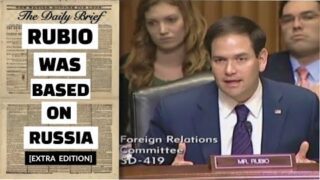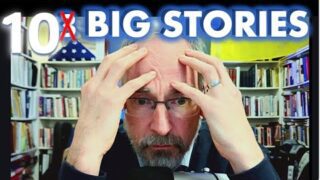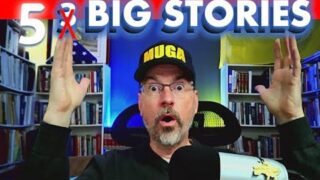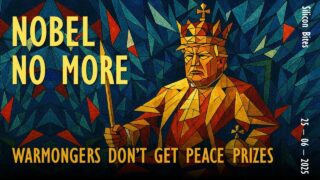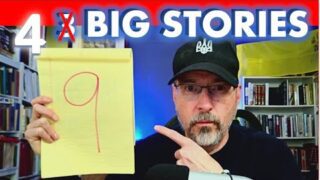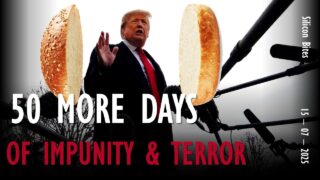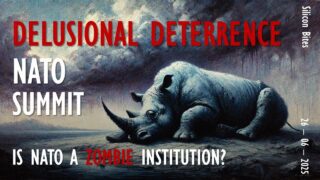
“Russians will 100% break any ceasefire in Ukraine,” Republican pundit warns
On 20 January, US President-elect Donald Trump takes office. While some in his administration have yet to go through the Senate confirmation process, with the exception of potential Pentagon chief Pete Hegseth, key foreign policy figures like Secretary of State nominee Marco Rubio, national security advisor Tim Waltz, and Special Peace Envoy General Keith Kellogg either do not require the confirmation or are set to pass it seamlessly.
These people will play a formidable, if not decisive, role in the Russo-Ukraine war and potential ceasefire deal. But what will this process look like? And what will happen when, not if, Russia breaks the ceasefire?
We asked Michael DiCianna, a research fellow at the Center for Intermarium Studies at the Institute of World Politics and non-resident research assistant at the Yorktown Institute, who has recurrently visited the Ukrainian frontline and presented the American policymakers with firsthand accounts of how the US aid is being put to use.
EP: Let’s start with the incoming administration and its attitude toward Ukraine. It seems like Trump is getting ready for a peace push. Any details on how that could happen?
MD: So, Trump has already floated several peace plans that have been discussed publicly, either through Kellogg’s channels or other diplomatic efforts. These include a ceasefire along the current lines of control in eastern Ukraine and the deployment of European/NATO but non-US peacekeepers to Ukraine to guarantee peace with a 25-year freeze on Ukraine joining NATO.
The exact details of what the Russians would get from accepting those peace plans haven’t come out yet.
I assume that the big carrot is sanction relief and, obviously, the offer not to allow Ukraine into NATO for 25 or 20 years. Unsurprisingly, the Russians have rejected both, with Russian Foreign Minister Sergei Lavrov making it clear.
There hasn’t been any reporting yet on the administration’s plan B or C. Hopefully, Waltz and General Kellogg will, based on their previous statements, further threaten Ukraine with armaments to force the Russians to talk.
EP: Is a ceasefire at all possible? What actually suggests that Russia needs it that much? It’s experiencing problems, but it still has a lot of ammunition and weapons and now imports North Koreans to fight. What would be the incentive for it to stop doing that?
MD: That’s been my critique of the peace plan opportunity. I think there are several reasons for the Trump administration to focus on a peace plan. He really wants to be the guy who cuts a deal here. That was the case with the North Korea deal and the Abraham Accords when he showed his job as a negotiator, which is understandable.
Comments from Mike Waltz and Marco Rubio also suggest why. They’ve both been solid on Ukraine for the last almost three years and feel that the Biden administration has basically put the Ukrainians in a position where they are losing and getting weapons late. They also feel that a ceasefire is the best outcome available to the Ukrainians right now.
Meanwhile, the Russians are pushing hard enough in the Pokrovsk area that they feel like they can keep gaining ground even at this exorbitant loss of life. They think they can outlast Western munitions and sanctions. The Russian economy is in the toilet, but that hasn’t yet translated into real political pressure at home or military industrial shortages. Yet.
There’s no real reason for the Russians to accept a ceasefire if they think they can keep up with the current pace.
Also, if there is a peace deal, it’ll be short-lived, and the Russians will break it like they did with Minsk 1, Minsk 2, and all the other ceasefires that were part of those negotiations.
I’m inclined to believe that the Russians no longer have the patience. I don’t think Putin has the 2-3-5 years to take a ceasefire deal, rearm, and resume. I believe he views the next 6 to 18 months to seize the chunks of Ukraine he wants to seize. He is not the young man he was in 2008, nor the youngish man he was in 2014. He doesn’t have the time and patience to outlast the West that way.
I think the Trump administration’s efforts have been understandable strategically, but I do think that they’re in for a rude awakening. I hope they have a plan B for when the Russians aren’t amicable in any sort of negotiations, given what’s happening on the battlefield.
EP: Would you say Rubio, Kellogg, and Waltz are good picks for Ukraine, especially by Trump’s standards?
MD: I think Rubio is one of the best picks for Ukraine. He’s a smart hawk on Russia, China, Iran, and North Korea.
Like I said, I think his stance on the need for a ceasefire is understandable. The Biden administration has sort of left the Ukrainians hanging, and it’s going to take a big momentum swing to change that. Even though it may happen.
On Waltz, I have similar thoughts.
Kellogg is an interesting and strong pick, too. He’s very experienced with the Russian threat and made comments that suggest he understands that the difficulty of negotiating with the Russians is that you can’t trust them and that they only understand force.
I hope that that perspective comes into play in this administration more quickly than during the Obama or Biden administrations, mainly that you can’t negotiate with the Russians in good faith.
Kellogg wants to negotiate because it is his job. When that backfires, as it will, Kellogg is more qualified than most folks to recognize that the collapse in talks will not happen because the US failed to do so. But because Russia is duplicitous. They’re essentially committing perfidy on a diplomatic scale with their constant pretense for negotiations.
So, if they’re coming with a mission to talk, they’ll be quickly disabused of the ability to.
And these are better people to have disabused to that round than Anthony Blinken and Jake Sullivan, who I’d fear would keep coming back to the table.
This is what happened with the Biden administration’s efforts in Israel with both Hamas, Hezbollah, and Iran. Every time the talks backfire, they come back to the table as if the US was at fault. Kellogg, Waltz and Rubio will not do that, I do not think.
EP: What does this whole negotiation process look like in reality? Kellogg goes to Kyiv, meets the European leaders, and goes to Moscow. What happens next? He collects data and returns to Washington D.C. And who does he present it to? To Rubio? To Waltz? To Trump? Who else is expected to participate in these kinds of meetings? How does it usually work?
MD: Based on the previous administration, I imagine he’ll be going directly to Trump. If Rubio has Trump’s confidence, which I imagine he will, he will be talking to Rubio and Waltz.
Kellogg’s position is likely more informal. I think it’ll be a little less structured in who he speaks with. I don’t know the size of his staff or who his more informal advisors will be.
Again, I don’t know if he expects it to succeed, especially with his experience.
Who will he talk to in Moscow? Lavrov, who’s a propaganda head and nothing more, with no qualifications as a foreign minister or a diplomat?
I’m sure he can’t expect those to be fruitful discussions.
I don’t think he imagines getting a chance to talk to Putin or any of Putin’s more serious advisors, mostly because of their isolation and Putin’s paranoia.
I think, the negotiation plan will start to unravel around the time Kellogg gets his first attempt to speak to Russian leadership.
EP: If we were to hypothesize a little bit more. So he goes to Moscow and talks to Putin, Lavrov, etc. Then he comes back to Washington D.C., and lays out some proposals. Trump says, “Let’s cut a deal.” Then like you say, they break it. There’s a 99,9% guarantee. What happens next? Will they, for example, supply tanks in bulk? Or what will it look like?
MD: Like I said, obviously, Trump has expressed concern about the escalation nature of long-range strikes into Russia.
I imagine it’s because he has folks in his camp who are more isolationist. Based on comments by Waltz and Rubio, I’m sure he can be course-corrected on that because I think they’re his smarter advisors on the subject. He’ll be encouraged to listen to them by the facts on the ground.
You’re right that there’s an incredibly high chance that the Russians will break any ceasefire negotiation quickly.
There’s a 100% chance the Russians break any ceasefire in the intermediate to long term because the Russians are bastards.
People advising Trump are aware of this. Kellogg is not an amateur on this. Neither are Rubio, Waltz, or senior advisors in the Senate and the House like Mike Rogers, Congressman Roger Wicker, Senator Mitch McConnell, etc. Add all the foreign policy experts and think tank people that they advise in an informed policy, who will be warning him of that.
I think it’s sort of the best hope for Ukraine in the intermediate term is when the Russians show that they are liars and deceivers; ideally, Trump will take that not only as a national security and geopolitical threat to the United States but also as a personal slight to himself.
There are many who speak about the “real Trump.” He was the one who had to pull the plug on a deal with North Korea because he felt the North Koreans weren’t being honest with him. This is based on the comments of a number of his senior North Korean officials from his first administration.
He was tough on the Iranians, the killing of Qasem Soleimani in Iraq. It was a big blow to the Iranians. He was on the offensive against them the entire time.
I also often think back to early in the Trump administration when it looked pretty ready to not pull out of Syria entirely, even though he later considered that, while not willing to follow the Obama administration’s pretense to overthrow Bashar al-Assad.
Trump sort of walked back on that. But with the chemical weapon attack in late 2017, we responded with a series of ballistic cruise missile strikes on Syrian air bases.
So, when Trump feels like he’s extended an olive branch or a type of it, and it’s rejected, he’ll recognize that it’s a threat. He will certainly be aggrieved that his personal efforts were not taken seriously.
If the Russians think that they can sneak a deal through with Trump and then betray it, he might be much more prickly about it than they expect.
Also, Trump’s commentary on the collapse of the Assad regime in December showed that although he cautioned that the US should not be involved in any way, he understood that it was a huge loss for the Iranians and the Russians. He also commented on how embarrassing the Russian losses have been in Ukraine for such little gain.
He could very well be thinking of Putin as sort of a loser at this point. As we go to 2025, the Russians have essentially seized a piece of Ukraine the size of Liechtenstein or Luxembourg. They’ve lost Syria, and Putin is not looking like the tough guy that he looked in 2016, 2017, and 2018 when Trump seemed to express some sort of “admiration” for him.
Overall, the Trump administration is better poised than Biden’s to enforce policies and lead to a more serious response than anything we’ve seen in the last almost 3 years.
EP: Say, there’s a ceasefire. Wouldn’t Ukraine be able to rearm itself during that period of time as well? Or to create some security model akin to that of Israel of purchasing weapons or exchanging technology?
MD: Ukraine needs to purchase a lot of weapons and grow its burgeoning defense sector.
Western European manufacturing, especially defense one, is finally getting back on its feet, for the first time since the 1980s. It’d be very foolish economically and military industrial policy-wise for Europe to pull the plug on its own defense sector.
So if Ukraine wants to copy that model, it really relies on European governments having the common sense that even if things look calm for a brief amount of time, with Russians allowing things to look calm, they need to invest as if it is wartime, which they should be doing now as they’re slowly hitting something that even slightly resembles wartime investing.
Trump expects NATO members to hit at some point a 5% of GDP defense spending, which is totally reasonable, and should be assumed by every state.
The trap would be if European leaders see this ceasefire as some sort of permanent thing.
Once again, we’re talking about the problem of trust here. Foolish, repetitive trust. If Berlin, Paris, and London go back to the peacetime delusion, then that’s where it could fall apart.
The positive, though, is that if defending continues to uptick and upticks at a little more of an exponential rate like it needs to, that’s sustainable for Ukraine and will allow Ukraine to strike harder when the Russians renege on the deal.
Ukraine needs to invest operationally and tactically, more efficiently, not only in defense industry but also defensive positions along its line of control.
If wars favor the defense now with modern technology and drone surveillance systems and other things limiting the ability for maneuver warfare, Ukraine needs to be able to, when the Russians break that ceasefire, able to blunt any sort of Russian blitzkrieg.
Whether that’s along the Russian temporarily occupied territories, eastern Ukraine, or down from Belarus again, Ukraine needs to be in a tactical and operational, as well as strategic position, to resist that forcefully.
I’m sure that they are aware of that, but that would be one way to show Ukraine’s commitment to the ceasefire is being able to prevent any blitz when the Russians break it.
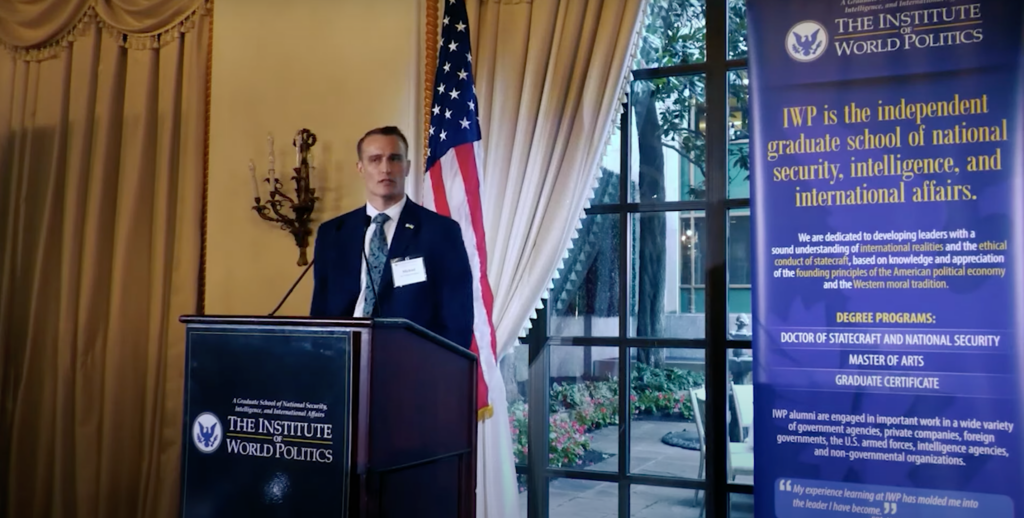
EP: Aren’t those 5% that Trump basically wants probably the reason why he wants Europe to actually step up and do something about supporting Ukraine? Because it seems to me that Trump has only a problem with the US donating so much compared to Europe. Meanwhile, some in Europe just can’t wait to resume some cheap gas supplies. Do you think it’s possible within this short time frame for Trump to force them to do that?
MD: There are limits on even a short time frame and how quickly you can get more factories up and running, like how you increase production rates. You need to put some grease on the wheels, figuratively and literally.
When the Russians break the deal, there also needs to be a more immediate consequence. Not just sanctions but really lifting the restrictions on what Ukraine can get, with the Germans being able to provide Taurus missiles. There should be no limitations on using ATACMS missiles or HIMARS.
Those are industrial questions that will need to be followed up. Part of it would be Trump getting Europe to go along with a plan to be much harsher on the Russians, like imposing real economic sanctions.
The Biden administration only recently started sanctioning parts of Russia’s energy sector.
I think Trump should expect European members of NATO to be the main suppliers of the next wave of arming Ukraine, whether that’s for the continued war effort or restoring Ukraine’s deterrence capabilities in the event of a negotiation and a ceasefire.
The reason for doing that is not just to prevent Russia from taking more territory but also to ensure that Ukrainians have the strength to demand that Russia return what’s occupied within a relatively short order.
Just economically, if war is a byproduct of economic math, the European Union or the EU members that are also NATO members, should be able to crush Russia, and they need to be able to.
If NATO can start approaching that 5% spending, that massively outpaces what the Russians can produce, plus with the brain power, intellectual prowess, and technological expertise you can get from the US and Europe. It outpaces what the Russians can provide and outmatches it. The Russians wouldn’t really stand a chance.
Read more:



